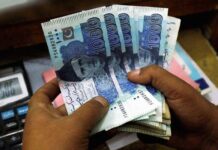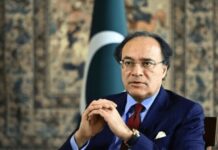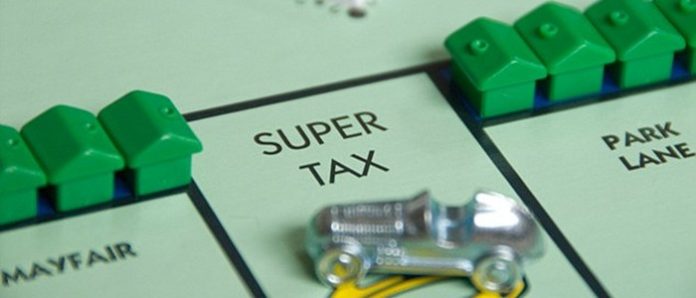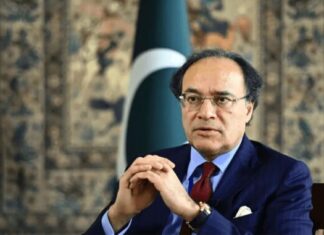On the 19th of July, the Islamabad High Court (IHC) proclaimed the imposition of super tax under section 4C of the Income Tax Ordinance 2001 (ITO) as ultra vires — exceeding the scope of authority or power granted by law, contract, or agreement. The IHC demanded it to be read down — the court adjudicated that a specific law is no longer valid as it has been demonstrated to infringe upon one or more charter rights.
What does this mean? “All notices demanding the recovery of super tax for the tax year 2022 have been rescinded. However, the Federal Board of Revenue (FBR) retains the prerogative to initiate new or fresh proceedings, provided they are in compliance with the judgement of the honourable IHC.”
Asad Ladha, a partner at Raja Mohammad Akram & Co and one of the petitioners, elucidates, “The IHC articulated that they are not nullifying it, nor are they abrogating it entirely.” He adds, “They are saying that it should be interpreted in the way that they are stating.”
So, has the IHC interpreted it?
Concurrence with other courts
In concurrence with the Lahore High Court (LHC) and Sindh High Court (SHC), the Islamabad High Court (IHC) proclaimed that 10 specific industries could not be exclusively subjected to the elevated 10% tax. Instead, these industries are to be subjected to the tax slabs established as part of the super tax, and will be levied the conventional rates stated therein, contingent upon their tax liability. Moreover, in agreement with the SHC, the IHC declared that the super tax could not be imposed retrospectively; rather, it would be levied on tax year 2023 — not tax year 2022, as originally stated.
However, the IHC has surpassed the verdicts rendered by the LHC and SHC, citing three additional infractions by the super tax.
IHC’s own twist
The IHC has proclaimed that the super tax could not be applied in three additional instances: where companies have paid their final tax; where the industry is exempt from taxation; and where freezing clauses in the petroleum exploration sector are applicable.
The IHC has stated that the lower super tax brackets can be levied on companies (up to 4%) once these infractions are rectified, provided that the companies meet all other criteria stipulated in the tax.
Looking at the IHC’s twist
Let’s start with the final tax stipulation. “Final tax is predicated on the notion that you remit a specific amount — for example, Rs 10 — and then you do not inquire about the amount or the rationale behind having Rs 10 deducted from you. It falls under a distinct category of tax, referred to as ‘full and final’,” explains Adnan Haider Randhawa, managing partner at AHR & Co and another petitioner.
Expanding on this concept, Randhawa continues, “Final tax falls under a separate category in which the FBR cannot demand any account or conduct an audit. The court questioned the FBR that if they have collected the full and final tax from someone, how could they impose an additional tax on them?”
In response to this inquiry, the court has stated that the FBR could levy the tax in instances of normal or minimum tax, but they cannot do so with final tax. “This constitutes a breach of promise that is still present in other provisions of the ITO today,” Randhawa concludes.
Moving on to the topic of exempted industries, Randhawa explains, “There are certain industries that have been exempted by law from tax and are still exempt today. They cannot have their exemptions revoked by 4C because those provisions have not been repealed.” To further clarify this point, Randhawa adds, “If they had been revoked, the matter would have been settled. They have not been revoked; they are still present in the statute. These industries are being told that they are not subject to normal tax, but they are subject to 4C.”
He continues, “This is a breach of statutory promise, as 4C does not have an overriding effect and the law has not revoked those provisions.”
What are these exempted industries then? “Benevolent funds’ revenue shall remain exempt from taxation. The criteria for determining income, as stipulated in Section 4C, shall not impede their tax-exempt status,” elucidates Waqar Zafar, partner at EY Ford Rhodes. “Issued recovery notices are deemed unlawful and blatantly illegal; thus, they have been annulled,” Zafar adds.
“Employing the same rationale, the exemption granted under the Second Schedule to the ITO (2001) to employee retirement funds shall remain in effect. As a result, these funds shall not be obligated to pay super tax per Section 4C,” Zafar concludes. Finally — what’s up with the petroleum sector?
“Petroleum companies enter into agreements with the president, known as petroleum concession agreements. These agreements delineate the terms of operations, as the land and its resources are the property of the state,” explains Ladha. “Within these agreements, there are freezing clauses pertaining to income tax intended to incentivise investors,” Ladha continues. “These clauses stipulate that there will be a cap on income tax, frozen at the time of signing the agreement.”
Elaborating on this point, Randhawa elucidates, “The terms of these contracts specify that taxation on their profits cannot exceed 55%. However, with the implementation of section 4C, some companies’ tax rates exceed 55%. They contend that this is not permissible, as it contravenes the contract signed by the president.” He adds, “Moreover, these contracts contain arbitration clauses. If they are violated, the companies can take the matter to international arbitration.”
Can companies rejoice then?
There are two aspects to this — companies that still need to pay taxes for the tax year 2022, and the fact that the super tax has been incorporated into the Finance Act of 2023.
Let’s start with the former. “The FBR may assert that the IHC’s judgement solely affects clients with registered offices in Islamabad, who are party to the writ petition. The order is exclusively for those who contested; it cannot be applied universally,” Zafar points out. “Nonetheless, as per the Constitution, the judgments of high courts are binding on subordinate courts — unless overruled or modified by the honourable Supreme Court,” Zafar clarifies.
Similarly, “What that means is if asked to pay the tax, you could — irrespective of where you are based — say that the super tax has been interpreted by the IHC and that is what the law is as it stands unless the Supreme Court suspends the judgement or interprets it differently,” adds Ladha.
In terms of the Finance Act “So you read it not as it stands in the statute book today, or in the Finance Act Amendments, but as the IHC are saying. The FBR is to read it from their judgement.”
“As things stand,” Ladha continues, “the super tax in the Finance Act 2023 is also as it has been interpreted in the IHC judgement. The judgement applies everywhere, and anyone can take advantage of it,” Ladha explains.
However, “The IHC verdict isn’t a significant impediment to the Government in its application of the super tax — unless, of course, the Supreme Court interprets it similarly,” contends Aamir Younas, another partner at EY Ford Rhodes.”
What happens now?
“The FBR is keen to swiftly approach the Supreme Court to have this judgement suspended. The reason for their urgency is clear: the judgement will have far-reaching and significant ramifications for tax filings in the tax year 2023 and beyond,” states Ladha.
“When the FBR files an appeal and it is heard, they will typically seek to have the judgement suspended until the petition is finally heard and decided — which could take several years. In the interim, they’ll argue that the judgement should be suspended. If it is, then the law will revert to what it was in the finance act amended super tax,” Ladha adds.
“At first glance, it may seem as though we are at a standstill for the next few years. However, there is a glimmer of hope. The Supreme Court is already hearing another writ petition filed against the SHC’s verdict.”
“Ladha clarifies that “The appeals made to the LHC’s decision — and when the FBR files one against the IHC’s — would normally classify as inter-court appeals. This is an intermediary stage before the Supreme Court can adjudicate on the matter.”
However, “The Supreme Court stated, when hearing SHC appeals, that they would entertain CPLA’s — direct appeals — from Islamabad as well once filed,” adds Ladha. This suggests that a verdict on the matter may be forthcoming, particularly now that it affects tax years 2022, 2023, and 2024 for companies across Pakistan.
























How I Got My Blank Atm Card And Became Wealthy…
My husband and I are here to testify about how we use Dark Web blank atm card to make money and also have our own business today. Go get your blank atm card today and be among the lucky ones. This programmed blank atm card is capable of hacking into any atm machine, anywhere in the world. It has really changed our life for good and now we can say we are rich and we can never be poor again. You can withdraw the maximum of $ 2,500 daily We can proudly say our business is doing fine and is not illegal to me, there is no risk of being caught because it has been programmed in such a way that it is not traceable, it also has a technique that makes it impossible for the CCTV to detect you.. For details and cost on how to get yours today, email the hackers on: darkwebonlinehackers (@) gmail (.) com or WhatsApp: +18033921735